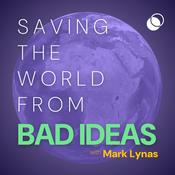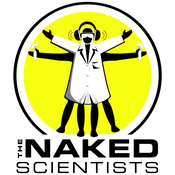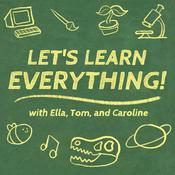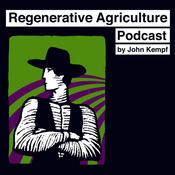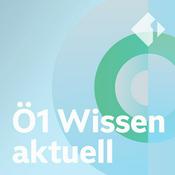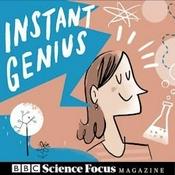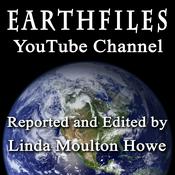42 episodes
- Is industrial food actually the villain — or one of humanity's greatest achievements?
In this provocative episode, Mark Lynas sits down with Jan Dutkiewicz, assistant professor at the Pratt Institute and contributing editor at the New Republic, co-author of Feed the People: Why Industrial Food is Good and How to Make it Even Better.
Dutkiewicz challenges the consensus that "the food system is broken" — arguing that industrial production has created unprecedented abundance and eliminated diseases of malnutrition. The real problems aren't industrialization itself, but specific fixable issues: worker exploitation, factory farming's animal welfare crisis, and agricultural lobbies' outsized power.
🧠 Topics Discussed:
🏭 Defining industrial food: scale, standards, regulation creating abundance (not just "ultra-processed")
🍽️ Why "the food system is broken" is the wrong diagnosis (it's a complex system, not a broken appliance)
📚 The food writing industry: Michael Pollan, Wendell Berry, and agrarian romanticism
🌾 Wendell Berry as anti-Norman Borlaug: romanticizing pre-industrial famine and malnutrition
👶 Child labor realities: agriculture has most injuries and deaths, minimum age exemptions persist
🏛️ Agricultural exceptionalism: carve-outs from labor laws, environmental regulations, animal welfare
🐖 Manure lagoons, gestation crates, and why artificial insemination gets bestiality exemptions
🍖 Factory farming inefficiency: 80%+ calorie loss converting feed to meat (not actually "efficient")
🌍 Environmental impact: livestock causes the biggest footprint by far (emissions, land, water, biodiversity)
🧬 "Grass-fed" as marketing: labels like "humane" and "free-range" are unregulated buzzwords
🧪 Plant-based alternatives and cellular agriculture: the real path forward (not small farms)
🚫 Europe banning "burger" and "sausage" labels: livestock lobby blocking competition
👨🏫 Guest Bio:
Jan Dutkiewicz is assistant professor at the Pratt Institute in Brooklyn and contributing editor at the New Republic. He co-authored Feed the People: Why Industrial Food is Good and How to Make it Even Better with Gabriel Rosenberg, offering a data-driven defense of industrial food systems while demanding better labor rights, animal welfare, and environmental regulation.
📚 Recommended Reading:
● Feed the People: Why Industrial Food is Good and How to Make it Even Better — Jan Dutkiewicz & Gabriel Rosenberg
● Michael Pollan — The Omnivore's Dilemma
● Wendell Berry — Essays on agrarianism
● Bruce Friedrich — Meat (Good Food Institute)
● Studies on agricultural exceptionalism and labor laws
● Research on livestock environmental impacts
💬 Quote Highlights:
"Industrial food means food produced using principles of scale, standards, and regulation to create abundance. On balance, that has made the world a better, healthier, more abundant place." — Jan Dutkiewicz
"Saying the food system is broken is like saying your house is broken when the air conditioner fails. Identify specific problems and seek specific solutions." — Jan Dutkiewicz
"The Dust Bowl — perhaps America's greatest ecological disaster — was caused by poor land management by small-scale family farmers before agriculture was industrialized." — Jan Dutkiewicz
"Every call to produce everything from scratch is implicitly a call for more unpaid labor by women in the household." — Jan Dutkiewicz
"If we abolished factory farms: 99% less chicken, 97% less pork, 67% less beef. We'd all be vegetarian overnight." — Jan Dutkiewicz
"8 out of 10 worst-paid jobs in America are in food. The people getting results aren't food writers — they're food workers themselves." — Jan Dutkiewicz
🌐 About WePlanet:
WePlanet is a global citizen and science movement challenging bad ideas and championing evidence-based solutions for climate, nature, and human progress. Learn more at weplanet.org
📥 Join the Conversation
💬 Email: [email protected]
📩 Subscribe: weplanet.org/podcast
👁️ Follow: @weplanetint - Can technology save us from environmental collapse — or is it just another false promise?
In this epic conversation, Mark Lynas sits down with Adam Dorr, Director of Research at RethinkX and author of The Degrowth Delusion, to explore four simultaneous technological revolutions reshaping our world: energy (solar, wind, batteries), transportation (EVs and autonomous vehicles), food (precision fermentation), and labor (AI).
🧠 Topics Discussed:
💡 Technology as "practical knowledge" and how it compounds autocatalytically (self-accelerating)
📈 S-curve adoption and X-curve decline: Why disruptions happen in 15-20 years, not centuries⚡
Solar, wind, batteries (SWB): Now the cheapest electricity ever, with near-zero marginal cost
🌞 Why massive solar overbuilding beats battery storage (the Clean Energy U-curve)
📦 Modularity advantage: Solar/batteries work from wristwatches to gigawatt plants
🔌 From scarcity to super-abundance: Rethinking efficiency as "use what's available" not "use less"
🚗 EVs and autonomous vehicles: Battery breakthroughs and transportation-as-a-service
🥩 Precision fermentation and cellular agriculture: 10-100x more efficient than animal farming
🏛️ Political resistance: GMO bans, cellular meat bans, and horseshoe theory opposition
🤖 The fourth disruption: AI replacing cognitive, operator, and general human labor
💼 Post-labor economics: Universal basic income, luxury services, and navigating abundance
🌍 Why abundance makes allocation easier than scarcity (and nobody has all the answers yet)
⚛️ AI existential risk vs opportunity: Superintelligence as doom or salvation?
🌟 Star Trek vs Terminator: Which future will we choose?
👨🏫 Guest Bio:
Adam Dorr is Director of Research at RethinkX, a nonprofit think tank analyzing technology disruption. He authored The Degrowth Delusion: Dispelling One of History's Truly Terrible Ideas and researches energy, food, transportation, and labor disruption. He's also a science fiction author exploring superintelligence and humanity's cosmic future.
📚 Recommended Reading & Resources:
● The Degrowth Delusion — Adam Dorr
● RethinkX research reports https://www.rethinkx.com
● Clayton Christensen — The Innovator's Dilemma
● Tony Seba and disruption theory https://tonyseba.com
● Mark Lynas — Six Degrees: Our Future on a Hotter Planet https://www.marklynas.org/books/six-degrees/💬
Quote Highlights:
"Life is unequivocally better on almost every indicator you care to measure than it was historically — life expectancy, infant mortality, literacy, everything down the line." — Adam Dorr
"The more energy we have available, the more abundant energy is, the more useful things we can do to garner prosperity." — Adam Dorr
"My team has documented more than 1,700 instances of new technologies spreading like wildfire once they catch — it only takes 15 to 20 years." — Adam Dorr
"Solar panels just sit there and happily make electricity for decades at near zero marginal cost. They really are a marvelous technology." — Adam Dorr
"We're headed into a world of fantastic abundance. That means hugely expanding our capacity to restore ecologies we've damaged." — Adam Dorr
"Our environmental issues are not an epic struggle of good versus evil. They are just problems. And problems are solvable with the right tools. Now for the first time in history, we finally have the tools we need." — Adam Dorr
🌐 About WePlanet:
WePlanet is a global citizen and science movement challenging bad ideas and championing evidence-based solutions for climate, nature, and human progress. Learn more at weplanet.org
📥 Join the Conversation
💬 Feedback or questions? Email: [email protected]
📩 Subscribe to new episodes: weplanet.org/podcast
👁️ Follow us on X/Twitter: @weplanetint Bad Idea #38 "Solving energy is enough for solving climate" with Bruce Friedrich
2026/2/05 | 1h 5 mins.Can we really solve climate change just by fixing energy — and ignore food?
In this episode of Saving the World from Bad Ideas, Mark Lynas sits down with Bruce Friedrich, founder and President of the Good Food Institute, to tackle Bad Idea #37: “Solving energy is enough for solving climate.”
Bruce argues that focusing exclusively on decarbonising energy while ignoring food systems is one of the biggest blind spots in climate policy.
From antibiotic resistance and zoonotic disease to geopolitics, national security, and the S-curve of technological change, this conversation makes the case that the protein transition must stand alongside the energy transition if we’re serious about saving the planet.
🧠 Topics Discussed:
● ⚡ Why decarbonising energy alone only solves about half the climate problem
● 🍖 Global meat demand: why “eat less meat” has never worked
● 🌍 Land use, deforestation, and rewilding at planetary scale ● 🧫 Cultivated meat, fermentation, and next-generation plant proteins
● 📉 The inefficiency of feeding crops to animals
● 🦠 Antibiotic resistance and industrial animal agriculture
● 🦆 Pandemic risk and zoonotic spillover from livestock systems
● 🐟 Cultivated seafood and the future of ocean recovery
● 📈 The protein S-curve and lessons from solar, EVs, and the internet
● 🏛️ Why government support matters — and where it’s already happening
● 🇨🇳🇮🇳 China, India, and the geopolitics of alternative proteins
● 🌱 Farmers, land sparing, and the future of agriculture
● 🌎 Food security, resilience, and feeding a growing world
👨🏫 Guest Bio:
Bruce Friedrich is the founder and President of the Good Food Institute (GFI), a global non-profit accelerating the transition to alternative proteins. He has worked for more than three decades at the intersection of food, climate, and innovation. Bruce is the author of Meat: How the Next Agricultural Revolution Will Transform Humanity’s Favorite Food and Our Future, and a leading global advocate for plant-based, fermentation-derived, and cultivated meat as climate, biodiversity, and food-security solutions.
📚 Recommended Reading & Resources:
● Meat: How the Next Agricultural Revolution Will Transform Humanity’s Favorite Food and Our Future
● Good Food Institute
● GFI Europe
● SYSTEMIQ & Good Food Institute – The Protein Transition: Pathways to Lower Climate, Land, and Water Impacts
● What’s Cooking? (UNEP alternative proteins report)
● Livestock’s Long Shadow (FAO)
● World Resources Institute: Creating a Sustainable Food Future
● IIASA land-use & food systems research
● Our World in Data: Meat and dairy production
● UNEP & ILRI: Preventing the Next Pandemic
💬 Quote Highlights:
“Focusing on energy alone while ignoring food is like lifting your foot off the accelerator — but keeping it on the highway to hell.”
“If alternative proteins reach 50%, we could free more land than the entire Amazon rainforest.”
“People aren’t going to give up meat — so we need to change how meat is made.”
“This isn’t a moral problem. It’s a science and engineering problem.”
“The protein transition is one of the most tractable climate solutions we have.”
🌐 About WePlanet:WePlanet is a global citizen and science movement challenging bad ideas and championing evidence-based solutions for climate, nature, and human well-being. Learn more at https://weplanet.org
📥 Join the Conversation:
💬 Feedback or questions? Email: [email protected]
📩 Subscribe to new episodes: https://weplanet.org/podcast
👁️ Follow us on X/Twitter: https://twitter.com/weplanetint- Is the 1.5°C temperature target helping or hindering climate action? In this episode of Saving the World from Bad Ideas, Mark Lynas sits down with his co-authors Kwesi Quagraine (climate scientist at NCAR) and Erle Ellis (professor at University of Maryland Baltimore County) to discuss their groundbreaking new paper published in Nature that proposes a complete rethinking of how we measure climate progress.
The team argues that global average temperature targets — the organizing principle of climate policy since Paris 2015 — are intangible, unactionable, and increasingly counterproductive now that we've essentially crossed the 1.5°C threshold. Instead, they propose the Clean Energy Shift (CES) — a simple, measurable metric that tracks how fast clean energy is displacing fossil fuels in real time.
🧠 Topics Discussed:
🌡️ Why global average temperature targets are intangible and don't translate into clear policy actions
🔢 The problem with "1.5 to stay alive": What happens when you cross a threshold framed as a limit of safety?
📊 Introducing the Clean Energy Shift (CES): Growth rate of clean energy minus growth rate of total energy demand
🔌 Why clean energy is now the cheapest option in most developing countries
🌍 How regional climate impacts differ dramatically from global average temperature (Africa vs Europe vs small islands)
🎯 Why "percent clean energy" should replace temperature as our north star metric (aiming for 100%)
📉 The challenge of measuring energy: Primary vs useful energy, and why efficiency gains complicate the numbers
⚡ Heat pumps, electric vehicles, and electrification:
💡 Why clean energy shift creates positive competition between countries (not just climate guilt)
🗳️ Why clean energy targets need to enter UNFCCC discussions alongside temperature goals
🔬 The data challenge: Why IEA and others need to release standardized, open-access energy data
📐 The paradox of our time: Passing "safety limits" while developing real solutions
🔭 The narrative shift from "avoid catastrophe" to "build clean energy abundance"
👨🏫 Guest Bios:
Kwesi Quagraine is a climate scientist at NCAR (National Center for Atmospheric Research) and former senior lecturer at the University of Cape Coast, Ghana, where he taught physics, meteorology, and atmospheric science. Originally from Ghana, Kwesi brings vital perspectives on how climate policy impacts developing nations and expertise in climate modeling, including solar radiation management research.
Erle Ellis is a professor of geography and environmental systems at the University of Maryland Baltimore County. His work with the United Nations Development Program's Human Development Report focuses on aspirational indicators for making a better future. Erle has spent decades studying global environmental change and teaching students how human societies interact with planetary systems.
📚 Recommended Reading & Resources:
● The Clean Energy Shift paper — Quagraine, Ellis, Lynas et al. (Nature, 2025) https://www.nature.com/articles/d41586-026-00246-z
● Michael Liebreich — "The Pragmatic Climate Reset" essay Part 1 / Part 2
● EMBER energy data and analysis https://ember-climate.org
● International Energy Agency (IEA) energy statistics https://www.iea.org/data-and-statistics
● Mark Lynas — Six Degrees: Our Future on a Hotter Planet https://www.marklynas.org/books/six-degrees/
● WMO (World Meteorological Organization) temperature data https://wmo.int/topics/climate
● Paris Agreement (2015) — text and NDC framework https://unfccc.int/process-and-meetings/the-paris-agreement
🌐 About WePlanet:
WePlanet is a global citizen and science movement challenging bad ideas and championing evidence-based solutions for climate, nature, and human progress. Learn more at weplanet.org
📥 Join the Conversation
💬 Feedback or questions? Email: [email protected]
📩 Subscribe to new episodes: weplanet.org/podcast
👁️ Follow us on X/Twitter: @weplanetint - Is “degrowth” a noble environmental solution — or one of history’s truly terrible ideas? In this episode of Saving the World from Bad Ideas, Mark Lynas sits down with Adam Dorr, Director of Research at RethinkX and author of The Degrowth Delusion: Dispelling One of History’s Truly Terrible Ideas.
Dorr argues that degrowth — the increasingly popular environmental movement calling for economic contraction — meets every criterion of a “Truly Terrible Idea”: it sounds virtuous, promises the moon, spreads easily, appeals especially to the young, and catastrophically backfires when implemented.
Mark and Adam explore why degrowth misunderstands economic growth itself, why material “stuff” is not the same as value, how technological progress consistently decouples prosperity from environmental harm, and why shrinking the global economy could never solve climate change — and would instead cause mass deprivation, collapse, and tyranny.
If you’ve ever heard the phrase “you can’t have infinite growth on a finite planet,” this conversation will challenge your assumptions. And it lays the groundwork for next episode’s deep dive into the optimistic, data-driven alternative: a future where humanity and nature both thrive.
🧠 Topics Discussed:
💡 What makes an idea a “Truly Terrible Idea” (TTI) — and why degrowth qualifies
🌍 Why degrowth’s core logic (“too many people consuming too much”) is seductive but false
📉 Why “infinite growth on a finite planet” misunderstands value, not stuff
🐎 How technological progress (e.g., cars replacing horses, digital replacing film) eliminates old harms
🔌 Why degrowth would block the very innovations (solar, EVs, biotech) that solve environmental problems
🔥 The “house on fire” analogy: why reducing emissions 50% still leaves the house burning
📉 GDP vs wellbeing: is economic growth actually correlated with human development?
🌐 Why degrowth is a luxury belief seldom embraced by people who’ve experienced real poverty
😡 The role of resentment, pessimism and misanthropy in the appeal of degrowth
🏛️ Why degrowth requires authoritarian state control and cannot be implemented democratically
🤝 The win–win path: how technology enables prosperity and ecological restoration
🔭 Why environmentalism desperately needs a credible, optimistic, tech-enabled vision of the future
👨🏫 Guest Bio:Adam Dorr is the Director of Research at RethinkX, a nonprofit think tank analyzing how new technologies disrupt existing systems. He is the lead author of The Degrowth Delusion, a sweeping critique of degrowth ideology and a roadmap for a technologically enabled, sustainable future. Dorr’s work spans energy, food, transportation, and long-term civilizational pathways.
📚 Recommended Reading & Resources: ● The Degrowth Delusion — Adam Dorr
● RethinkX research reports (energy, food, transport disruptions)
● Studies on GDP vs Human Development Index (UNDP)
● The Limits to Growth: Malthus and the Classical Economists
● Steven Pinker — Enlightenment Now
● Literature on zero-sum vs non-zero-sum thinking
💬 Quote Highlights:
“Truly terrible ideas don’t die out on their own — they must be actively refuted.” — Adam Dorr
“It’s not that we need to do less — it’s that we need to do better.” — Adam Dorr
“There is no sustainable amount of fire. Reducing emissions by half still leaves your house burning.” — Adam Dorr
“Poverty is not virtuous. It is not something to aspire to. To believe otherwise is a failure of compassion.” — Adam Dorr
“Technology is the only way we have a rational, data-driven basis for optimism.” — Adam Dorr
🌐 About WePlanet:
WePlanet is a global citizen and science movement challenging bad ideas and championing evidence-based solutions for climate, nature, and human progress. Learn more at weplanet.org
📥 Join the Conversation
💬 Feedback or questions? Email: [email protected]
📩 Subscribe to new episodes: weplanet.org/podcast
👁️ Follow us on X/Twitter: @weplanetint
More Science podcasts
Trending Science podcasts
About Saving the World From Bad Ideas
a WePlanet podcast.
The world is shaped by ideas—some good, some bad, and some that seemed good at the time.
This is a podcast about rethinking the things we take for granted, challenging sacred cows, and admitting when we’ve been wrong.
With your host, awarded environmental author and activist Mark Lynas, we take a deep dive into the environmental, political, and social debates shaping our future—without the outrage, tribalism, or easy answers.
Help us save the world from bad ideas. Because the future depends on us getting it right.
Podcast websiteListen to Saving the World From Bad Ideas, Science Vs and many other podcasts from around the world with the radio.net app

Get the free radio.net app
- Stations and podcasts to bookmark
- Stream via Wi-Fi or Bluetooth
- Supports Carplay & Android Auto
- Many other app features
Get the free radio.net app
- Stations and podcasts to bookmark
- Stream via Wi-Fi or Bluetooth
- Supports Carplay & Android Auto
- Many other app features


Saving the World From Bad Ideas
Scan code,
download the app,
start listening.
download the app,
start listening.
